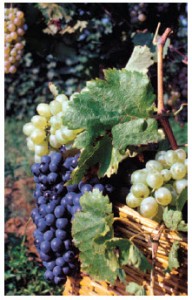
Georgia, with its strategic location between Europe and Asia in the Caucasus region, is now, more than ever, attracting the attention of large and small businesses. Formerly occupied by the Soviet Union, Georgia was unable to flourish economically until its recent emergence as a modern, free state. Now, the situation has dramatically changed. Corporate executives the world over are taking note that Georgia offers a stable, democratic and pro-business environment.
Through free-trade agreements with Turkey and countries in the Commonwealth of Independent States, along with the recent signing of a “deep and comprehensive free-trade agreement” with the EU, Georgia now accesses almost one billion consumers. Georgia has one of the most liberal trade policies in the world, and offers international investors stable, secure, transparent and corruption-free economic conditions that allow business to thrive. In addition, according to the latest Tax Misery and Reform Index, released by Forbes Business & Financial News, Georgia is the world’s fourth least tax-burdened country. For these reasons, it is increasingly chosen as a regional headquarters for companies doing business in the Caucasus, Central Asia or Eastern Europe.
Economic data from leading financial institutions have recognized Georgia’s conservative economic stewardship and business-friendly environment. The Georgian government has implemented broad and comprehensive reforms aimed at ensuring that the country’s public sector and institutions operate openly and free of corruption, eliminating obstacles to trade and establishing competitive corporate tax rates. The reforms have been very successful in attracting foreign trade and investment. A number of international indices illustrate Georgia’s impressive progress. For example, Georgia ranks:
• 15th of 189 countries in the World Bank’s Ease of Doing Business Index (2015)
• 22nd of 178 countries in the Heritage Foundation and Wall Street Journal’s 2015 Index of Economic Freedom
• 47th of 146 countries in Forbes magazine’s Best Countries for Businesses (2013)
• 69th of 144 countries in the World Economic Forum’s Global Competitiveness Report (2014-2015)
With protectionist hindrances removed, goods and services now flow through Georgia faster than at any point in recent history.
Georgia has a mixed economy with strong agricultural roots. Thanks to its 21 microclimates, agriculture accounts for nine percent of GDP. Georgian farmers produce a wide range of grains, vegetables, fruits, meat and dairy. Wine, the country’s most famous agricultural product, enjoys an 8,000-year-old tradition, which is mentioned in the ancient literary works of Homer and Apollonius of Rhodes.Along with the profound expertise of its winemakers, Georgia’s ability to produce more than 500 indigenous types of grapes also contributes to the growing demand for its national beverage.
Wine export volumes in 2014 peaked at 59 million bottles, an increase of 13 million bottles from 2013. One of Georgia’s goals is to introduce the fine quality and unique taste of its wines to Canadians. Exports to the Canadian market are increasing steadily: In 2014, Georgia exported 106,800 bottles to Canada, 1,004 bottles more than the previous year.
Georgia has a lot to offer Canadian investors. Likely because of its relatively recent emergence as an independent country, Canadian investors have yet to tap the abundant potential Georgia offers. Profitable investment opportunities exist not only in its farms and vineyards, but also in its fast-growing hydroelectric, mining, manufacturing and tourism sectors. In 2013, two-way trade between Georgia and Canada was close to $120 million. Exports from Georgia to Canada amounted to $90 million. Imports from Canada to Georgia were $28.5 million. Major products exported from Georgia to Canada include gold, ferro-alloys, fresh and dried nuts, wines, natural and mineral waters. In turn, Canada’s major exports to Georgia are pork, fish, motor vehicles, butter, oils and meats.
One of the main goals of my embassy is to intensify trade and economic relations with Canada by showing Canadian companies the investment possibilities in Georgia. Since 1997, Georgia has enjoyed the benefits of the Generalized System of Preferences (GSP) with Canada, which lowers tariffs on 34,000 goods exported from Georgia to Canada. We expect that this will generate significant opportunities for the business communities in both countries. At the same time, we look forward to concluding and signing The Foreign Investment Promotion and Protection Agreement (FIPA) and starting negotiations on a free-trade agreement.
Alexander Latsabidze is ambassador of Georgia. Reach him at (613) 421-0460.





